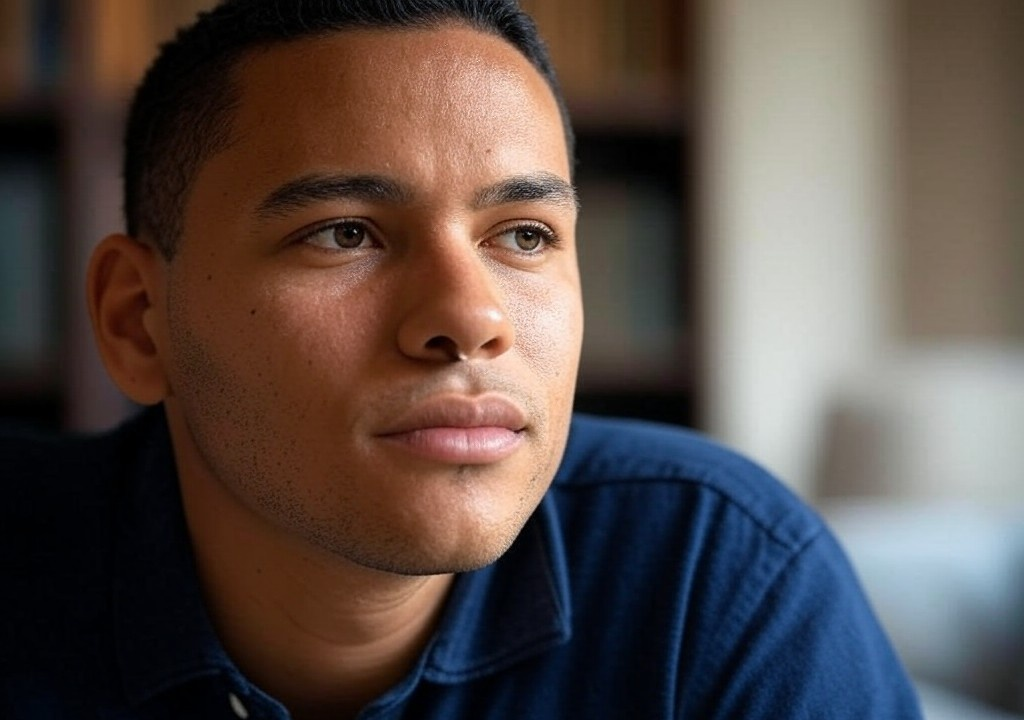How I Went From Living in the Background to Owning Center Stage
A Humble Start: Rice, Beans, and a World of Dreams
Growing up in Miami as the son of Cuban immigrants, my life was the definition of humility. My parents and grandparents worked tirelessly to make sure we had what we needed—though “what we needed” wasn’t much. We lived in a two-bedroom duplex, stacked together like a game of human Jenga, sharing stories, laughter, and the occasional argument over who left the empty Goya can in the pantry.
Let me paint you a picture. In our home, salsa music—courtesy of Celia Cruz or Los Van Van—played more often than the TV. My abuelo would shuffle around, one slipper mysteriously missing, talking about the glory of pre-revolution Cuba while my abuela would interject, correcting every other word. Picture a telenovela, but with fewer dramatic slaps and more “Pass me the café.” It was a noisy, chaotic, and beautiful life.
But amidst the noise, there was always one clear message: dream big and work for what you want. My abuelo used to tell me, “La raíz de cualquier cosa buena es esfuerzo.” (The root of anything good is effort.) And yet, as a teenager, effort didn’t always feel glamorous. It felt a bit like slogging through algebra homework when all you wanted to do was pass notes in class.
Finding My Feet: When Failure Taps You on the Shoulder
Fast forward to college. I traded Miami’s sun-soaked rhythm for the fluorescent-lit lecture halls of Florida International University. Was it inspiring? Sure. Did I also feel completely out of place at times? Absolutely.
While studying Latin American History, I came to a tough realization: I had been living my life in the shadow of who I thought I should be. I wanted to make my family proud. I wanted to honor their sacrifices. But I also wanted to write—really write—and that felt reckless, like trading guaranteed frijoles for a risky soufflé that might collapse in the oven.
And collapse it did. My first serious essays submitted to literary contests disappeared into the void without so much as a “thanks for trying” email. Rejection feels a lot like getting ghosted after a really great first date. You replay every word you wrote (or said) and wonder where it all went wrong.
But here’s where theeffort thing comes back. Just like abuela’s ropa vieja, good things take time. I got back to writing, flung myself into creative workshops, and even snagged an opportunity for a writing fellowship in Chicago. It was there, bundled in heavy coats and dodging slush puddles, that I began crafting narratives about love, family, and cultural identity.
Turning Ordinary into Something Extra(Ordinary)
Here’s the thing I’ve learned over the years: the extraordinary is rarely about giant leaps. It’s about a series of small but meaningful steps—like my abuelo planting a mango tree in the backyard with a tiny seed until, years later, its branches shaded our entire patio. That’s how transformation happens.
For example, people often ask me about writing and how to “make it.” They expect some magical formula, but honestly, those early years weren’t glamorous. I juggled freelancing gigs by day and scribbled overly poetic short stories by night. At times, it felt like walking into a party dressed as Beyoncé only to have no one notice you because the real Beyoncé just showed up.
But the grind—God, the grind—eventually pays off. Little by little, I started seeing my words picked up by publications. A story here, an article there. I started connecting with readers who’d email me things like, “Hey, your piece reminded me of my abuela!” That’s when I knew I was doing something right: capturing the universal in the deeply specific.
Even now, working here feels surreal. Each article I write is like sending a little piece of my story out into the world, hoping it resonates with someone picking up the thread of their own life.
What I Learned Along the Way
While my path has been uniquely mine (full of cafe cubano-fueled writing marathons and countless flip-flops), I’ve picked up some truths along the way that can apply to anyone trying to build their extraordinary life.
-
1. Say Yes to Looking Ridiculous.
Taking risks feels awkward. Like asking someone to dance when you can only vaguely rhythmically move your left foot. But say yes anyway. The first draft, the first presentation, that one karaoke performance—it’s okay if it’s cringe. Cringe is a bridge to better. -
2. Rejections Are Proof You’re Trying.
Seriously. If you’re not hearing “no” (over and over again), you’re probably playing it too safe. Rejection isn’t personal; it’s part of the process. Like dating—we’ve all had a “we just don’t vibe” moment, and that doesn’t make either side terrible. -
3. Lean into Your Story.
What makes you different is exactly what people want to connect with. For years, celebrating my Cuban roots in my writing felt like a gamble—would people care? They did. Authenticity is magnetic.
Flipping the Script on Ordinary
Looking back, the path from my little Miami duplex to where I am now wasn’t a straight shot. It was messy and unpredictable, a little like love itself. But that’s the magic, right? The extraordinary isn’t about living someone else’s dream. It’s about learning how to slow dance with uncertainty (and maybe even step on its toes once in a while).
You don’t need the world’s shiniest title or a wildly exotic backstory to start transforming your life. Promise me this: you’ll take the next small, meaningful step—and if anyone asks where you got the courage, feel free to tell them about my abuelo’s mango tree.
Turns out, remarkable growth often starts with the smallest seed.




















